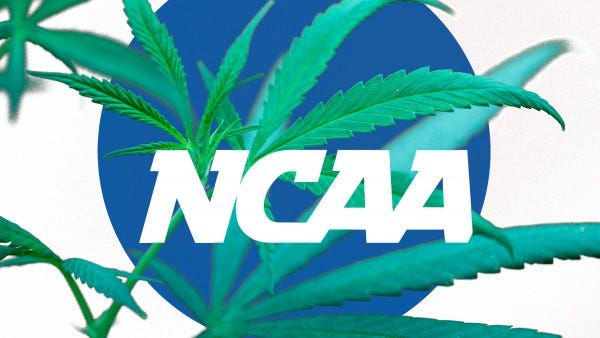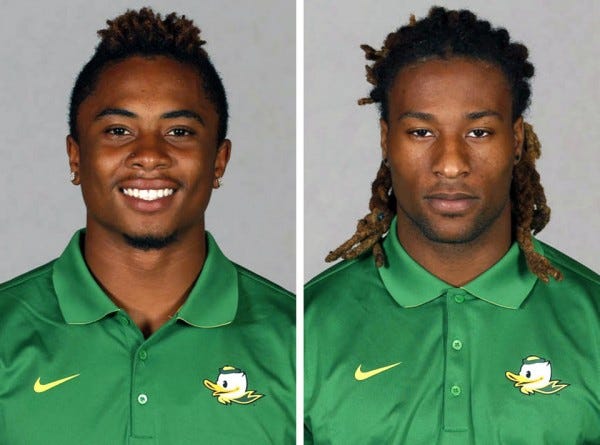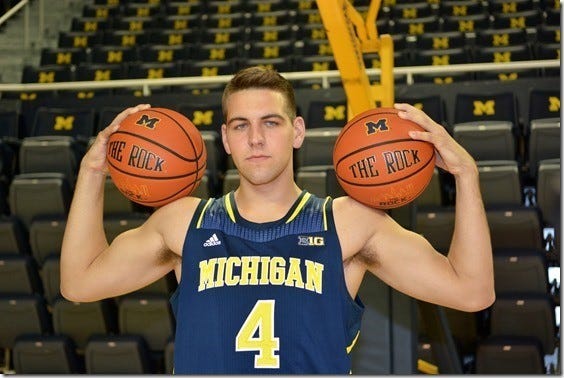NCAA Needs To Take Another Look At Its Marijuana Policy
Click to read the full story: NCAA Needs To Take Another Look At Its Marijuana Policy

Ohio State defeated Oregon 42-20 to claim college football’s national championship, the first-ever in the new College Football Playoff era. Would it have been any different if the Ducks’ Darren Carrington and Ayele Forde could have played? We will never know.

Carrington and Forde each tested positive for marijuana and, as a result, were ruled ineligible for the national championship game. What many may not realize is that players who violate the NCAA marijuana policy will now be ineligible for half of a season. According to NCAA rules, players testing positive for banned substances, such as marijuana, are ineligible for a period of one half of the team’s season.
Forde is a senior, but Carrington, a redshirt freshman, could miss six games next season. Oregon can appeal the NCAA decision but, as is most likely, Carrington will miss half of his redshirt sophomore season, which brings up the question: should the NCAA re-evaluate its policy on marijuana?
Should big-time college football players be smoking marijuana? Probably not, but the changes in the perception of the drug are filtering through society. Four states, including Oregon, have passed laws that legalize the use of marijuana. As many as 20 more have made it legal for medicinal purposes.
Are FBS football players smoking weed? Most likely. The NCAA periodically does surveys on drug use among its athletes. The latest was done in 2013 and found that 22 percent of student-athletes have used marijuana in the last year. That includes athletes in all sports, but the survey did show that substance abuse is higher among males. Regardless, are there college football players smoking weed? The answer is yes.
To understand why the NCAA even has a marijuana policy, you have to understand that the drug was grouped with others like heroin and LSD as part of the street drug panic in the 1980s. Smoking weed was viewed as the same as shooting up heroin. Add in the epidemic known as anabolic steroids and the result was that the NCAA joined the federal government in trying to prevent drug use. The result was the NCAA’s drug testing policy, which has changed little through the years.
The NCAA mandates drug testing, but there is really no rhyme or reason to it. There is year-round testing as well as championship testing, but not all players are tested. Rules state that testing is random, but the NCAA can test whoever they like. Year-round testing only tests for substances such as steroids and masking agents not marijuana.
Only teams that qualify for championships, such as those that participate in bowl games, are subject to the championship testing. The NCAA does test for THC, the active ingredient in marijuana, during championship testing, which brings up the actual testing itself. The NCAA standard for the amount of THC found in a urine sample is five nanograms per milliliter (5 ng/ml). Any student-athlete with a concentration of THC at 5 ng/ml or higher is found to be in violation of the NCAA drug policy.
Comparing the NCAA test to that of say, the National Football League, illustrates just how out of touch the organization is with its marijuana policy. NFL athletes are not in violation of the league’s substance policy unless the concentration of THC is 35 ng/ml or higher. Even Olympic standards are higher coming in at 150 ng/ml.

While the NCAA’s testing continues to be questioned, its penalties for violating the drug policy are even more ridiculous. During last year’s NCAA men’s basketball tournament, Michigan forward Mitch McGary tested positive for marijuana as part of the championship testing done by college athletics’ governing body. McGary, who missed most of the season with an injury, would not even play in the tournament but, as a result of violating the NCAA’s drug policy was suspended for a year.
A one year suspension was the NCAA’s penalty for having 5 ng/ml of marijuana in his system. The length of the suspension was amended just last year to half of a season. McGary, who was a freshman All-American for the Wolverines the year before, decided to turn pro instead of missing another season.
Another twist in drug testing is that most schools have their own drug policies and testing systems in place. The irony of McGary’s story is that if he would have failed a drug test by the university, he would have been reprimanded but would not have been suspended at all.
Forde and Carrington failing their drug test did bring to light the NCAA and its antiquated drug policy. The organization would do itself, and its student-athletes, a world of good by examining its rules and punishments related to the use of banned substances.
The post NCAA Needs To Take Another Look At Its Marijuana Policy appeared first on Movie TV Tech Geeks News By: Rick Bouch
